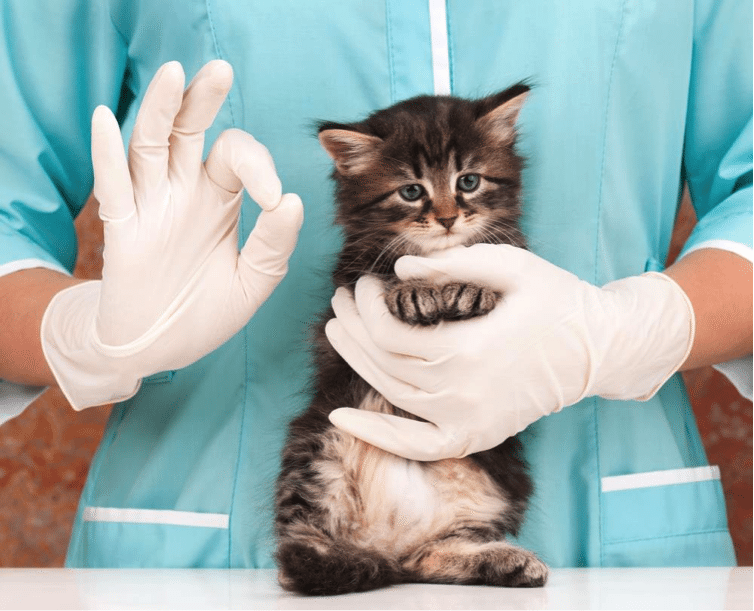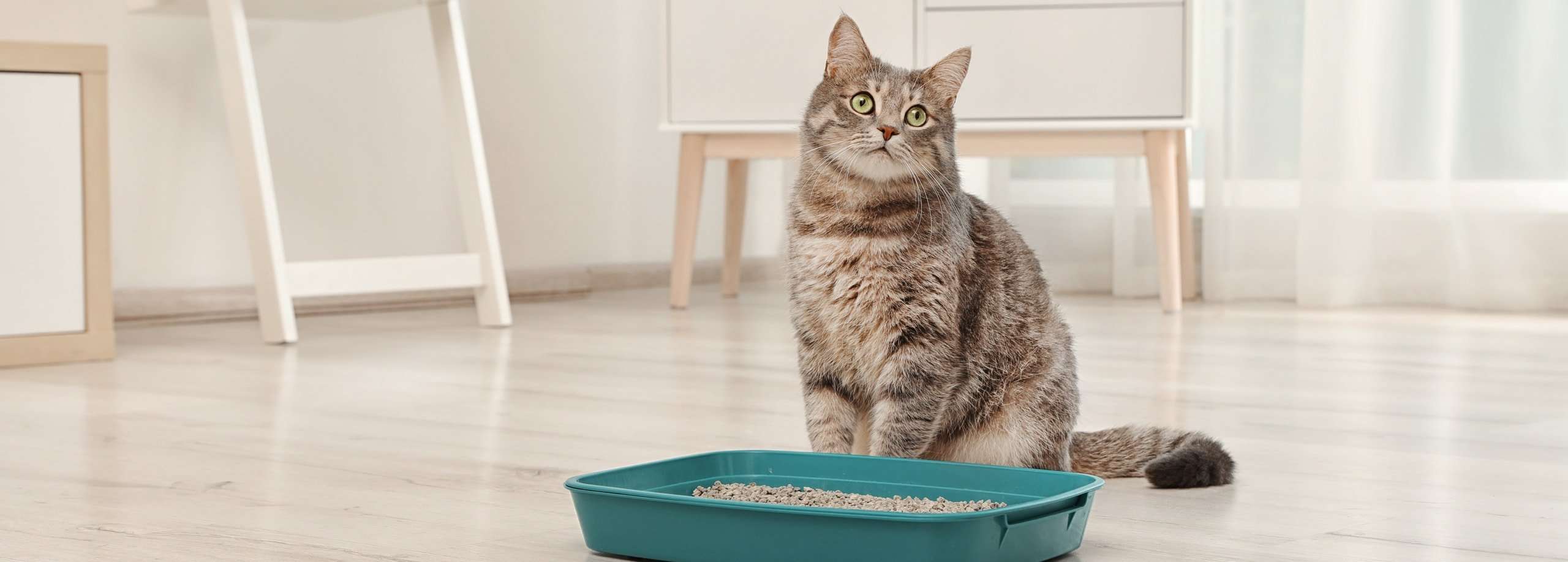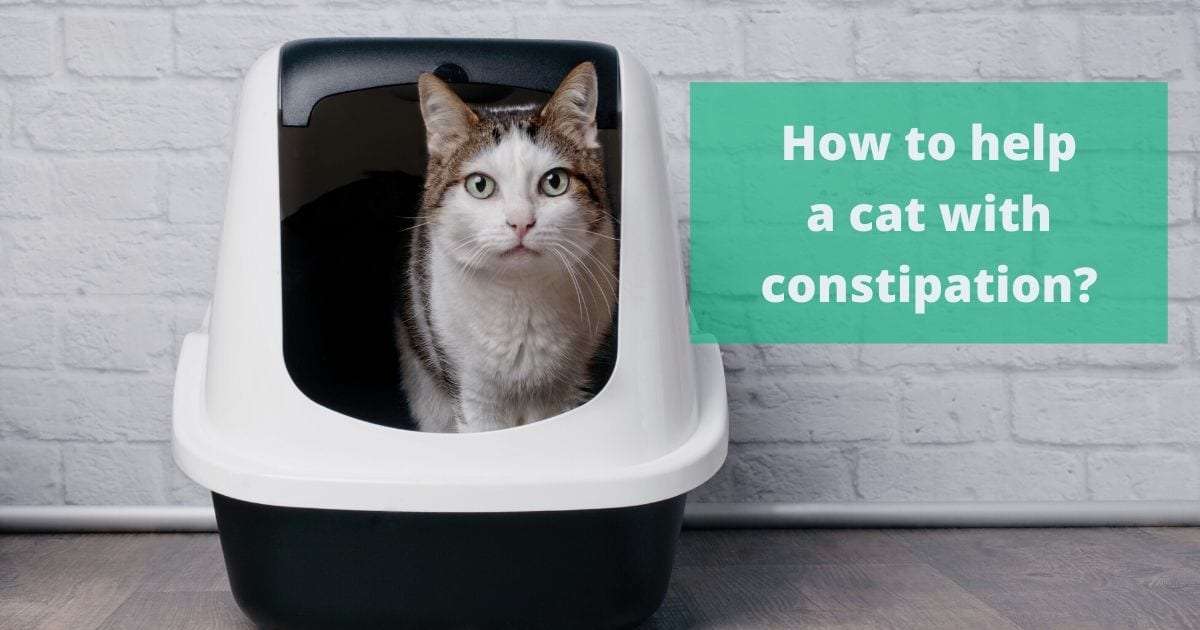Vet Treatment For Constipation In Cats
Constipation is common in cats but can indicate serious disease, so it should be discussed with your vet.
Constipation must be treated as soon as possible to reduce the risk of permanent damage due to prolonged distension of the colon. Effective treatment involves identifying and correcting the underlying disorder , removing the impacted feces, and preventing recurrences.
For immediate relief of constipation, your veterinarian can give your cat fluids and/or an enema. Administering an enema to a cat is a veterinary job and should not be attempted at home, says Dr. Bales. Some types of enemas designed for people are actually very toxic to cats.
Vets can also prescribe medications or recommend over-the-counter solutions to help you manage the symptoms of your cats constipation.
More importantly, your vet can help identify the underlying issue thats causing the constipation so it can be treated, rather than just trying to manage the symptoms.
Some cats with long-term constipation or obstipation may have megacolon, an enlarged intestine caused by a defect in the muscle strength of the colon. Cats with chronic constipation or megacolon that have been unresponsive to medical treatment may respond to removal of the affected section of the large intestine.
Heres a list of things you can do at home to help relieve your cats constipation.
How To Help A Constipated Cat
You are sitting by your dining room table and you hear your cat repeated scratching the litter box. At first, you might feel blessed to have such a clean cat that tries its best to cover its smell! However, the scratching continues, so you decide to take a look: There’s your cat, scratching and straining, straining and scratching. You finally come to the conclusion that your kitty must be constipated.
Constipation in cats is a pretty common scenario, especially for obese, middle-aged, and senior cats. Here are the signs to look for and what you should do.
It is very important to distinguish a constipated cat from a cat with a urinary tract infection . These conditions present with similar symptoms and are easily confused. A male cat with a urinary blockage or UTI requires emergency veterinary care.
So What Are Clinical Signs That My Cat Is Constipated
- Straining to urinate or defecate in the litter box
- Having bowl movement accidents outside of the litter box
- Having firm, dry, small fecal balls in or around the litter box
- Taking longer to defecate in the litter box or making multiple trips to the litter box
- Vomiting
- Weight loss
- Dehydration
Now, keep in mind that normal healthy cats dont typically become constipated. As a veterinarian, I see feline constipation more in the following:
- Middle-aged to older cats
- Obese cats
- Cats with osteoarthritis that may have pain jumping into the litter box
- Cats with underlying medical problems
Also Check: Why Does My Cat Move His Water Bowl
When To Worry About Constipation
Its important to know that kittens vary greatly in how often they go to the bathroom. While a kitten should pee every few hours, they may pass stool anywhere from 1 to 6 times a day, depending on the kittens age, care, and GI health.
Sometimes, a kitten may even go 24 hours without pooping. If this happens, dont panicbut do keep an eye on them and focus on trying to help them go potty. If they havent pooped in more than 48 hours, thats when youll definitely want to head to a veterinarian for further assistance. If the kitten has any signs of discomfort such as straining, bloating, crying in the litter box, lethargy, or distension, veterinary care should be sought.
Constipation Signs: How To Tell If Your Cat Is Constipated

Of course, not finding anything to scoop is a telltale sign something could be off with your cat, but according to Dr. Garside, there are even more clues to feline constipation to be aware of. âDifficulty defecating and hard stools in the litter tray are the most common signs,â Dr. Garside says. âCats may even yowl in discomfort as they try to defecate the hard stools.â
Don’t Miss: How To Draw A Realistic Cat Step By Step
Reduce Stress And Anxiety
Our small furry friends get stressed easily. This can be due to an obvious reason like a new pet in the house, moving, or new loud noises nearby. Sometimes its even smaller things! But most cats will need some time to adjust, and in this period, they can become constipated from the stress. Calming pheromones or supplements can, in this case, help your cat!
Keeping An Eye On The Litter Box
Read Also: Is Raining Cats And Dogs A Metaphor
Health Benefits Of Pumpkin For Cats
Plain pumpkin is a good source of fiber for cats. In fact, many veterinarians turn to pumpkin as a remedy for constipation in feline patients.
Dr. Angelo Maggiolo, medical director of County Animal Clinic in Yonkers, New York, often recommends pumpkin as an easy fix for mild cases of constipation in cats. It will get the colon moving a little better in cats predisposed to constipation, he says.
The fiber found in pumpkin also adds bulk to the diet, making cats feel more satiated, explains Dr. Heather Meyers, a veterinarian for Carolina Pets Hospital in Wesley Chapel, North Carolina. This is especially beneficial for obese cats who are on a diet. Adding pumpkin at mealtime may even help prevent painful anal sac problems or help reduce hairballs.
And while pumpkin is a good source of vitamins A and C, which help support vision and immune system health, Meyers advises that its not necessary to use pumpkin as a vitamin supplement. Cats are generally not deficient in these vitamins if theyre on a well-balanced diet, she says.
Pumpkin also contains zinc, which can help improve a cats skin and coat, and cucurbitacin, a biochemical compound that is thought to have some activity against intestinal parasites. However, with a well-balanced diet and proper veterinary care, most of these concerns can be taken care of without the need for pumpkin.
Is Miralax Safe To Use For Cats
As long as Miralax is given under the instruction of a veterinarian, it is safe to give to your cat.
There are, however, a few side effects one should be aware of:
- Dehydration: Miralax binds the water in the gut, preventing it from entering back into the body. This can exacerbate dehydration.
- Diarrhea: Like with any laxative, it can go a little too far and cause diarrhea.
You May Like: Why Do Cats Paw At The Floor
Risks Of Pumpkins For Cats
Pumpkin is a relatively easy and safe additive, Maggiolo assures. While its unlikely that pumpkin will upset a cats stomach, eating too much can possibly cause diarrhea. If this happens, its best to skip the next serving or feed a smaller amount. Your veterinarian can advise you how to modify the serving size, if symptoms occur.
Keep in mind that you should not serve the stem, skin, or pulp of a pumpkin to your cat. These parts of the pumpkin simply dont have a high enough nutritional value to be beneficial for your cat. It is also best to avoid feeding leftover jack-o-lantern, as it may have rotted by sitting outside too long. Plain canned pumpkin is the best option for your pet, and will stay fresh in the refrigerator up to about a week after opening.
Even though your feline friend may not be able to have a bite of your Thanksgiving pie, there is definitely a place for plain pumpkin in his diet.
Other Home Remedies For Constipation
There are also other home remedies for constipated cats. These remedies include canned pumpkin, which should relieve constipation, as it is a rich source of fibers. Make sure the canned pumpkin doesnt contain sugar.
Other fruits and vegetables that are rich in fibers may also relieve feline constipation.
Read Also: How Often Should You Trim Cat Nails
Whats Behind It It Could Be Anything
Stress is a factor. Some cats may stop defecating because their litter box isnt to their liking. They may not like the litter scent or consistency. Or its just not tidied up often enough for them. Adding a new baby, pet or workmen to the household can also cause stress that you guessed it makes it hard for cats to do their business.
In older cats, diseases such as kidney failure can cause them to become dehydrated, which can lead to hard, dry stools that are difficult to pass. Cats with arthritis may have difficulty climbing up and down stairs to reach the litter box or have trouble squatting. Other causes include diets low in fiber, trauma , certain drugs, gastrointestinal obstructions and even lack of exercise.
Preventing Constipation Is Key

Once the constipation episode resolves, it is important to prevent future episodes from happening. Over time, the colon may lose muscular motility and cause a condition called megacolon . In such a case where medications are tried with no results, the cat may need external help to evacuate the bowels. Techniques may include enemas and the manual extraction of impacted feces this is a permanent condition requiring repeated medications, trips to the veterinarian’s office, or surgery.
Do not use human enemas on cats! Fleet enemas and those containing phosphate, sodium phosphate, or saline, can be fatal.
Don’t Miss: How To Treat Dry Skin On Cats
What Is Constipation In Cats
Most cats will poop approximately every 24 to 36 hours. If your cat is pooping less frequently, strains when she attempts to poop or doesnt leave any deposits in the litter box, constipation is likely the issue. Its a common problem in cats thats usually mild enough to be remedied with at-home treatments.
If it happens infrequently, theres no need to worry, but you should contact your vet if it becomes a common problem or if its been more than 48 to 72 hours since shes had a bowel movement. Constipation can sometimes be a sign of serious health issues, not to mention be uncomfortable .
Constipation In The Cat
17th August 2018
Constipation is a term used to describe absent, infrequent or difficult passage of faeces .
When constipation occurs, faeces are retained longer than normal in the colon or rectum , and as a result the faeces tends to become dryer and harder , which may make the problem worse.
Animals with constipation may exhibit signs of pain when trying to pass faeces , and this may be accompanied by excessive straining to pass faeces. If there is prolonged constipation, the faeces may become severely impacted in the colon and rectum, and this is known as obstipation. With repeated bouts of constipation or obstipation the colon can become distended and lose its ability to contract and push faeces towards the rectum, a condition called megacolon .
Also Check: How Many Calories To Feed Cat
Is Your Cat Um Backed Up Animal Experts Share Their Best Strategies And Natural Remedies For Helping Ease A Feline’s Elimination Woes
Sometimes, no matter how much straining and pushing there is, the necessary result isnt happening! Just as with the condition in humans, cat constipation is rather common and diet plays an important role. The root cause of cat constipation is often improper nutrition, points out Dr. Kim Bloomer, an animal naturopath and author of the site Aspenbloom Pet Care.
The term constipated means that the cat has infrequent bowel movements or ones that are difficult to pass. It may be caused by a diet too low in fiber, a lack of clean, fresh water or hairballs or other small items in your cats digestive tract. The cat could also be suffering from a blockage present from birth or that developed due to injury or illness or a myriad of internal imbalances, notes veterinarian Dr. Jane Brunt, executive director of the CATalyst Council and past president of the American Association of Feline Practitioners.
Other reasons that prevent a cat from pooping might be painful lesions, such as strictures, masses or perianal disease, says Anthea Appel, a New York City-based naturopathic/homeopathic animal consultant.
In general, elderly cats suffer this ailment more often than kittens, but a cat of any age or breed that eats a low-fiber diet or doesnt drink enough water can develop it. For prevention, pet owners should be in close contact with their vets about the best diet for their cats.
Treatment Of Constipation In Cats
Once your veterinarian has determined the underlying cause of your cat’s constipation, he or she can determine the best course of treatment. For minor or acute cases of feline constipation, your vet may recommend treatments like:
- Increased hydration:
You may increase your cat’s hydration by providing more water at home. Your vet may also use intravenous hydration to treat your cat’s constipation.
- Stool softeners:
Stool softeners may be given orally to help your cat defecate normally.
- Laxatives:
Recommended Reading: How To Fly With A Cat
Symptoms Of Cats With Osteoarthritis
Cats hide symptoms of illnesses, so you may not notice anything specific but rather that your cat is slowing down or doesnt come up onto the bed anymore.
Cats with osteoarthritis are unlikely to exhibit typical signs of joint pain, like lameness , although a stiff-legged gait, decreased range of motion and increased irritability may be apparent.
But more likely is that your cat will start to have difficulty grooming, jumping onto furniture or accessing the litter box.
Osteoarthritis in cats does not have an immediate, severe impact. It is a slow deterioration it will take a long time between the onset of DJD and when you can start seeing symptoms.
Natural Home Remedies For Cat Constipation
Cats can get constipated just like people do, but its not always obvious because cats are very good at hiding health problems and not showing pain. However, constipation can lead to bigger health problems like Megacolon if left untreated.
Weve searched the internet and asked everyone we know to find as many natural home remedies as we could find to help you get started dealing with this problem so you can enjoy a better quality of life before it causes any permanent damage. Continue reading while we take a look at each remedy and explain how it works, how to find it, or how to make it to help you get your cat back to normal as quickly as possible.
Recommended Reading: How To Walk A Cat On A Leash
It Could Actually Get Worse
Cats who are chronically constipated may develop megacolon, a serious condition in which the colon diameter becomes so distended that the tissue loses its ability to move contents along. In those cases, surgery may be needed to remove that segment of the digestive tract.
Thats why its a good idea to keep your eye on the litter box and seek veterinary help sooner rather than later.
Why Is My Cat Constipated And What Can I Do

If youre a cat owner, you know the importance of keeping your cat happy and healthy. Or rather, you understand the importance of making sure that you understand the rules and regulations that your cat has put in place! A healthy cat is a happy cat, and that means that you must monitor his health and activity at all times in order to make sure your feline is in good physical condition.
Constipation is a common ailment that many kittens and adult cats suffer from the good news is that this is an easy condition to fix with home remedies.
You May Like: Why Do Cats Play With Their Food
What Are The Causes Of Constipation In Cats
Like humans, cats can become constipated. Constipation is a condition where the cat has trouble emptying their bowels. Often it is also associated with feces that is very hard.
Constipation can happen now and then in healthy cats, without it being a cause for worry. But, if it happens often, a more severe reason could be behind your cats troubles.
What Causes Constipation In Elderly Cats
Constipation has several causes that vary in severity. The most common explanations include:
If your cat is dehydrated, it may have kidney disease. One in three geriatric cats experience some degree of renal failure.
According to the Journal of Small Animal Practice, kidney problems are also often linked to hyperthyroidism. This is another medical problem that can lead to feline constipation.
Older cats have more brittle bones, and a fractured pelvis is a common injury. As Vet Compendium explains, a fractured pelvis leads to a narrowed colon. This makes defecation difficult, or even impossible, in some cases.
As per the BMJ, your cat may have megacolon. Megacolon is the dilation or restricted movement of the digestive tract.
Read Also: What Is A Cat’s Normal Heart Rate